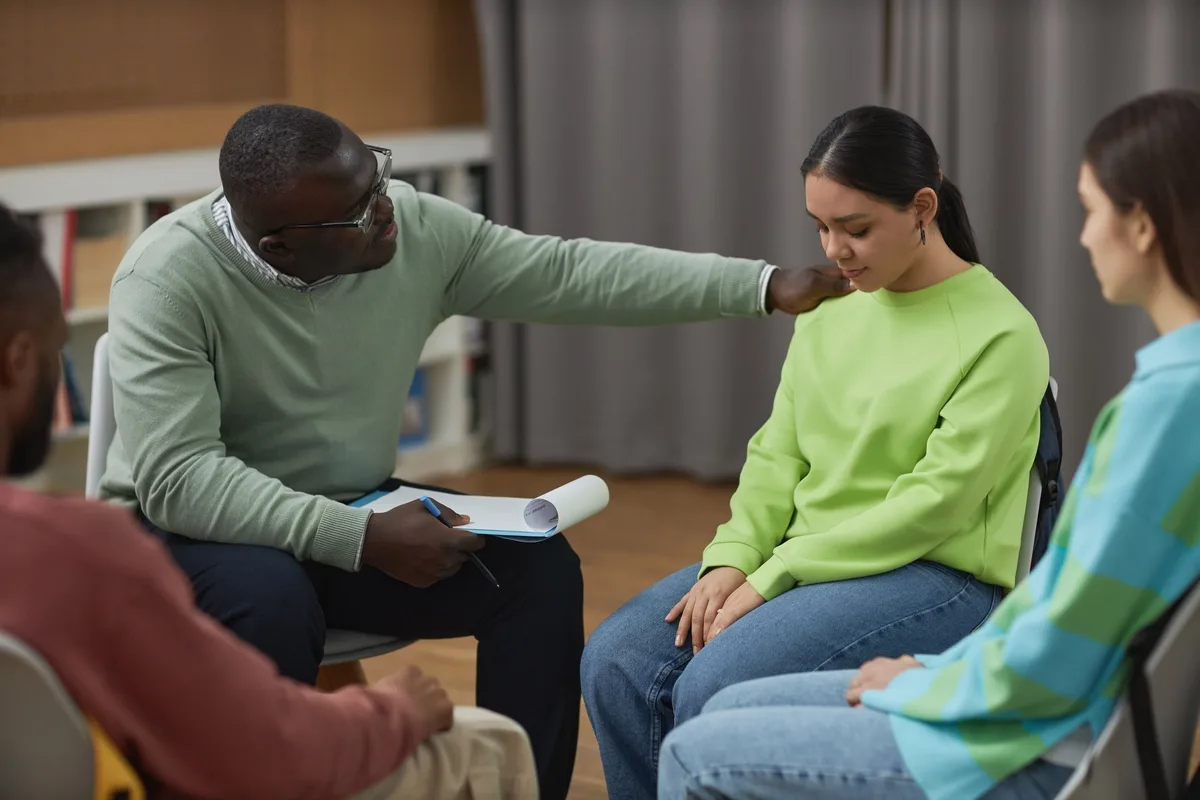24/7 Helpline:
(866) 899-111424/7 Helpline:
(866) 899-1114
Learn more about Group Therapy centers in La Rue
Group Therapy in Other Cities

Other Insurance Options

Holman Group

American Behavioral

Group Health Incorporated

Ambetter

Humana

CareFirst

Magellan

State Farm

UMR

Choice Care Network

Health Choice

ComPsych

Self-pay options

CareSource

MVP Healthcare

Oxford

Optima

Kaiser Permanente

Anthem

Sliding scale payment assistance











